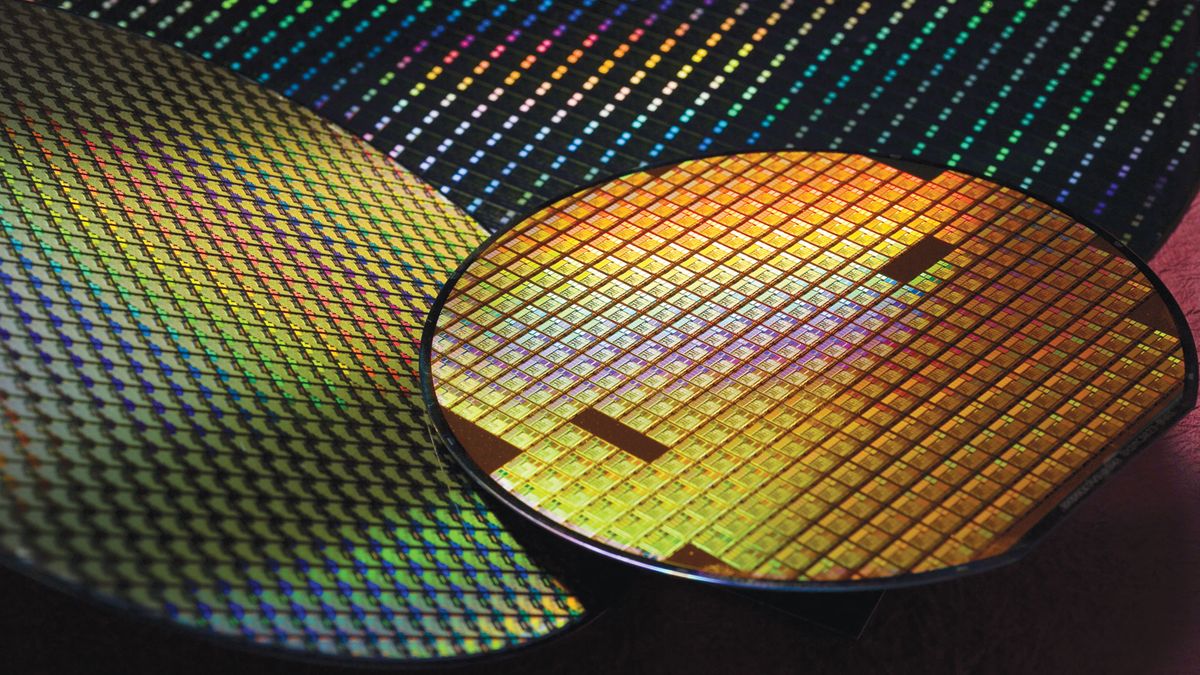
The US government is soon to begin awarding up to $52 billion in subsidies for domestic semiconductor manufacturing. The funding is a part of the CHIPS and Science Act that President Joe Biden signed into law in August 2022. But before the funds are given, the US Commerce Department is introducing rules to ensure beneficiaries of the funding don't spend it elsewhere, and it particularly doesn't want it feeding back to China.
According to a report by Reuters, the proposal seeks to prevent recipients of funding from funneling money into 'countries of concern' such as Russia and China. A company with a global reach could theoretically engage in research or development of sensitive semiconductors in countries the US does not want to be sharing with.
The measures seek to restrict sensitive technologies from falling into the wrong hands. This includes quantum computing and AI technology, radiation hardened chips and communications equipment that could be used for things like missiles and drones.
The proposals prohibit recipients of funding from expanding semiconductor manufacturing capacity in certain countries for as long as 10 years.
"We have to be absolutely vigilant that not a penny of this helps China to get ahead of us," Commerce Secretary Gina Raimondo told Congress last week.
The US Government sees semiconductor manufacturing as an arms race and it wants to keep its closely held secrets out of the hands of its adversaries.
The ultimate goal of the CHIPS Act is to restore American technological leadership. Not just for commercial reasons, but for broader strategic reasons including reduced reliance on manufacturing in Asia and the protection of critical supply chains.
It's not all cloak and dagger stuff. The semiconductor shortages experienced during the Covid years showed that production bottlenecks can be devastating. From a gaming perspective, consoles were all but unavailable, GPU supply was far exceeded by demand, and even DDR5 memory was ridiculously priced at the time of its launch due to a shortage of power management chips.
Diversified global chip making capacity should remove bottlenecks and help to prevent these types of shortages from happening again.
- SEO Powered Content & PR Distribution. Get Amplified Today.
- PlatoData.Network Vertical Generative Ai. Empower Yourself. Access Here.
- PlatoAiStream. Web3 Intelligence. Knowledge Amplified. Access Here.
- PlatoESG. Carbon, CleanTech, Energy, Environment, Solar, Waste Management. Access Here.
- PlatoHealth. Biotech and Clinical Trials Intelligence. Access Here.
- Source: https://www.pcgamer.com/us-to-introduce-guardrails-to-ensure-that-companies-benefitting-from-chips-act-funding-spend-it-where-they-should-be
- :is
- :not
- :where
- $UP
- 10
- 2022
- a
- absolutely
- Act
- again
- ahead
- All
- American
- an
- and
- ARE
- AS
- asia
- At
- AUGUST
- back
- BE
- before
- begin
- beneficiaries
- benefitting
- biden
- Billion
- broader
- but
- by
- CAN
- Capacity
- certain
- chains
- China
- chip
- Chips
- CHIPS Act
- closely
- Cms
- Commerce
- commercial
- Communications
- communications equipment
- Companies
- company
- computing
- Concern
- Congress
- consoles
- could
- countries
- Covid
- critical
- Demand
- Department
- devastating
- Development
- does
- doesn
- Domestic
- don
- Drones
- due
- during
- elsewhere
- engage
- ensure
- equipment
- Ether (ETH)
- Even
- exceeded
- expanding
- experienced
- Falling
- far
- feeding
- For
- from
- funding
- funds
- gaming
- get
- given
- Global
- goal
- Government
- GPU
- Hands
- Happening
- Have
- Held
- help
- helps
- HTTPS
- in
- includes
- Including
- into
- introduce
- IT
- ITS
- joe
- Joe Biden
- jpg
- just
- Keep
- Last
- launch
- Law
- Leadership
- like
- Long
- Making
- management
- manufacturing
- measures
- Memory
- missiles
- money
- of
- on
- or
- out
- part
- particularly
- perspective
- plato
- Plato Data Intelligence
- PlatoData
- power
- president
- president joe biden
- prevent
- Production
- prohibit
- proposal
- Proposals
- protection
- Quantum
- quantum computing
- Radiation
- reach
- reasons
- recipients
- Reduced
- reliance
- remove
- report
- research
- restore
- restrict
- Reuters
- Russia
- s
- Science
- seasonal
- secretary
- secrets
- Seek
- Seeks
- sees
- semiconductor
- Semiconductors
- sensitive
- sharing
- shortage
- shortages
- should
- showed
- signed
- Soon
- spend
- Strategic
- such
- supply
- Supply chains
- T
- technological
- Technologies
- that
- The
- These
- they
- things
- this
- time
- to
- told
- types
- ultimate
- us
- us government
- used
- want
- wants
- was
- we
- week
- were
- with
- Wrong
- wrong hands
- years
- zephyrnet










